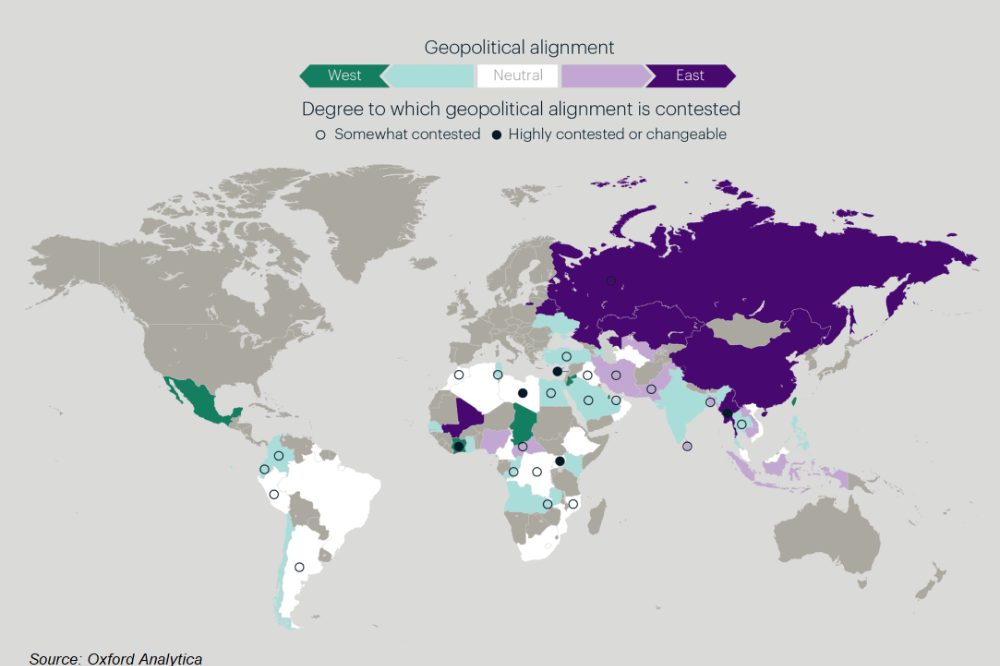

The latest political risk index shows a shift in geopolitical alignments across the globe, dividing it into opposing blocs and increasing risks in several key areas as more and more countries “de-align” from Western powers and their values.
The geopolitical alignment ratings in the political risk index were assigned by independent experts from Oxford Analytica’s global network, while countries and territories included in the index were selected based on volumes of foreign investment and levels of political risk.

WTW and Oxford Analytica found that
In general, the Western bloc lost much of its influence in all world regions compared to five years ago, when the WTW political risk index counted as many as 30 countries in the Western bloc and 13 of these were considered ‘strongly allied’ to the West.
WTW and Oxford Analytica now found that only six countries or territories in the index qualified as ‘strong Western allies’. These included Jordan, Mexico, Qatar, and Taiwan. On the other hand, seven countries or territories rated as leaning ‘strongly East’, including China, Russia, Mali, Myanmar, and Belarus.
“The findings suggest that countries such as Turkey, Saudi Arabia, Pakistan, Cameroon, and Uganda are ‘dealigning’ from the West,” said WTW director of political risk analytics Sam Wilkin. “The West’s declining influence in the emerging world will create yet more risks for globalised business.”
WTW and Oxford Analytica’s political risk index also found that the countries that had begun to incline East from an originally neutral or Western stance over the past five years also faced greater expropriation risks (7%) and experienced fewer political rights (-10%) and less economic freedom (-4%) during the same period.
Countries that had merely ‘dealigned’ from the West also experienced the same trends on those three key risk indicators. WTW attributed these rising risks to the declining influence of the U.S. and its allies.
